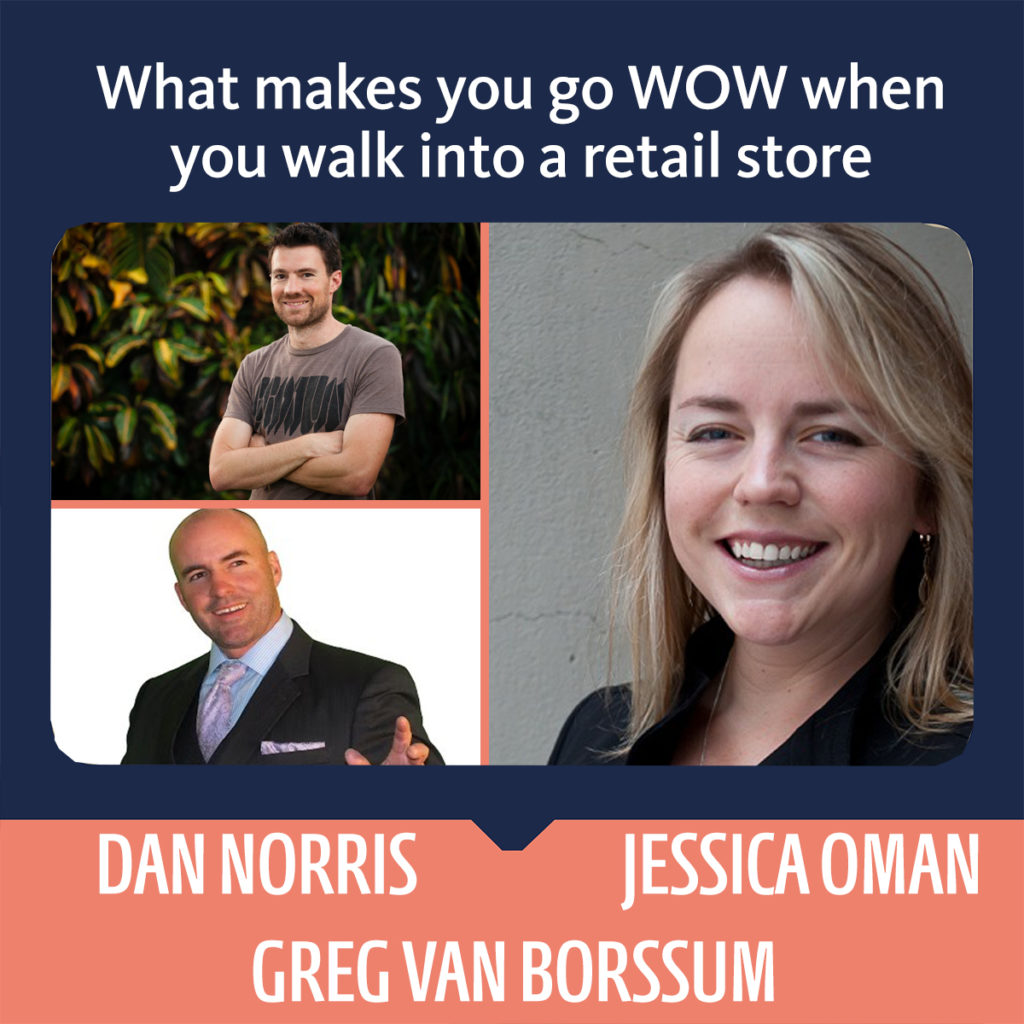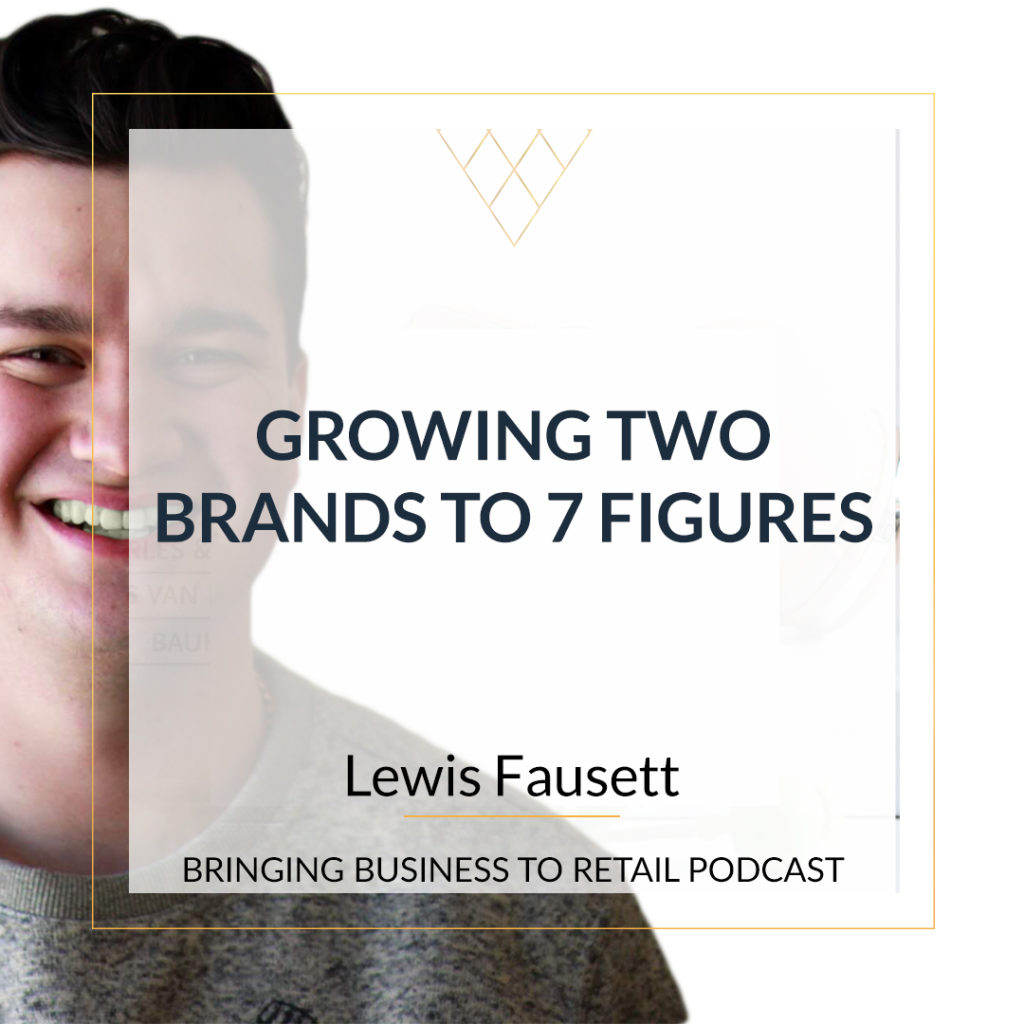WANT EXPERT ADVICE FOR YOUR RETAIL/ECOMMERCE BUSINESS?

Salena Knight
I’m sorry to tell you this, but you aren’t good enough to build a multi mullion dollar business on your own. Growth comes when you find your key people. And once you find them, you need to encourage them to stay.
In today’s episode, I’ll be sharing with you what I’ve been doing over the years and how it has evolved when incentivising your team.
** There are 9 strategies I use when helping retail/e-comm businesses move their stock fast so they can reinvest that money into new business. Head over to https://salenaknight.com/stock to know exactly what those 9 strategies are and how I use them.
Key Takeaways:
- Set clear expectations and values from the beginning to attract and retain good team members.
- Consider offering credit to spend in-store as a cost-effective incentive for employees.
- Personalize incentives based on individual preferences, such as gift vouchers or fuel vouchers.
- Express gratitude and recognition to team members through voice messages or social media shout-outs.
- Create a culture of friendly competition within the team to motivate and engage employees.
Quotes:
- “One brain alone cannot build a hundred million dollar business.” – Leila Hermosi
- “Good people will eventually turn up for you if you have a strong brand and culture.”
- “The most overlooked thing that people forget is just saying thank you and you’ve done a great job.”
- “Just asking them what they want is the easiest way to find out what kind of incentive they want.”
- “Don’t underestimate the power of social status and validation for millennials and Gen Z.”
[TRANSCRIPT]
0:00:00 – (Salena Knight): Hey there, and welcome to today’s episode of the bringing business to retail podcast. Now, I know as much as anyone how difficult it has been to hire people over the last couple of years. I mean, we have hired people for our marketing agency. We have hired people in our sales team. I’ve hired a business manager. I’ve actually hired and fired probably ten people in the last twelve months. Now, how many of those have stayed?
0:00:29 – (Salena Knight): Actually, only a couple of them. And you know as well as I do that when you get a great team member, you do everything you can to keep them in your business because you can’t grow a business with one brain alone. I have this fangirl crush on Leila Hermosi and she said that at a conference recently. She’s like, one brain alone cannot build a hundred million dollar business. You know that. I know that. And so when you find these key players, you always have to look at ways to encourage them and to keep them to stay and to make sure they don’t get headhunted by somebody else.
0:01:10 – (Salena Knight): And it can be easy to jump into hiring, trying to give everybody everything right at the beginning. I know that sometimes you can feel like you have to be bigger and better than somebody, than your competition to get people to come and want to work for you or work with you. I kind of feel like if you’ve built up a decent brand and if you have great values and beliefs and you share those, then good people come.
0:01:38 – (Salena Knight): Yes, sometimes it’s a little bit difficult, but good people will eventually turn up for you. It is the same with retaining your customers and retaining your team is if you have that brand, if you have that culture, if you have that ethos, people love being part of a community. I did a little inside of our Facebook group, we’ve got a free Facebook group called the Retail Academy. And inside of that, someone asked recently about how to incentivize their team for a job well done.
0:02:11 – (Salena Knight): And so in today’s episode, it’s just a little conversation that I had, a little reply to that question based on what I have been doing in the past, what I do right now, how I’ve changed what I offer over the years. And sometimes the simplest little thing that you can give them actually doesn’t cost any. There’s a couple of things that you can give them that don’t actually cost you anything. So that’s what we’re going to talk about in today’s episode.
0:02:42 – (Salena Knight): Now, Christmas is everywhere, and Christmas for most of you means a lot of cash coming into your business. And it also means making sure that you have a good team around you.
0:02:55 – (B): So today’s episode is really going to.
0:02:56 – (Salena Knight): Help you with that. But I just wanted to quickly jump in and remind you that right now, if you are finding that the customers aren’t coming in or if you are finding that you’re maybe not getting the sales that you want, potentially it’s because you haven’t got all that fresh stock coming in that customers are going to expect. And quite often that is simply because you don’t have the cash flow and you don’t have the cash flow because the money is tied up in the stuff that is already sitting on your shelves.
0:03:24 – (Salena Knight): So just a reminder that you can jump in and grab my nine failproof ways to move old stock masterclass over@selenaknight.com. Stock where I’ll share with you why the stock isn’t moving, my formula to work out how to get rid of it, and then nine. In fact, there’ll be ten very, very soon ways to get rid of that stock and get the cash flow coming in. Now, I’m going to tell you now, the master class is not rocket science.
0:03:54 – (Salena Knight): It is stuff that works. And we know it works because you guys have been putting the strategies into place and telling myself and my team all the money that you’ve been making, everything from a couple of up to $20,000 in just a few hours. Now think about what that could do for your business. Like even just an extra $2,000. If you could make $2,000 this weekend, what would that do for your business coming into Christmas?
0:04:21 – (Salena Knight): I’m guessing kind of a lot, right? So putting these strategies into play actually can make a huge difference for your business and for your ongoing customers. All right, you can grab that over@selenaknight.com stock. But now let’s jump into today’s mini episode on how I think you can incentivize your team for great work.
0:04:48 – (C): Hey there, and welcome to the bringing business to retail podcast. If you’re looking to get more sales, more customers, master your marketing and ultimately take control of your retail or e commerce business, then you’re in the right place. I’m Selena Knight, a retail growth strategist and multi award winning store owner whose superpower is uncovering exactly what your business requires to move to the next level.
0:05:19 – (C): I’ll provide you with the strategies, the tools and the insight you need to scale your store. All you need to do is take action. Ready to get started?
0:05:37 – (B): Hey, Kevin, I just want to jump in and say, great question. First of all, let’s break this down into two parts. You’ve got people who don’t want to work weekends and you’re already paying a decent minimum wage, and then you’ve got the bonuses. So I’m going to answer your question in two parts. Let’s look at working weekends first. Now first of all, I will say that in all my time of hiring, which is around 20 years, this right now, like the last twelve months, have been the hardest to try and find good people.
0:06:10 – (B): I mean, there’s everything been written about it. But what I have to say is we have always managed to attract really good people into our business and that is because we set up the expectations right from the beginning. So making sure that your values are in the job ad, making sure that you are really clear on the behavioral types and the culture of your business, putting that into your original job post is key for us.
0:06:41 – (B): I mean, inside of our supercharge mastermind, we actually have what we call the ultimate hiring guide that helps you hire people within 3 hours of your time. And we talk about behavioral profiling and culture fit and making sure that the person, like putting what we call Easter eggs into job ads to make sure that before you even waste your time getting somebody to an interview, you’ve got a really good, not expectation, but a really good indication of whether this person is at least potentially going to be a match. So I would say that to begin with, is really setting up those expectations right from the beginning.
0:07:17 – (B): The other thing I would say is, if it’s your existing staff, were they hired to work on weekends? Because let’s just go back to the job ad, I would make it really clear that weekends are an expectation, it is not optional. And so if they don’t want to work weekends, they don’t bother to apply. If it’s your existing staff, what were they hired to do? Were weekends included in that? And if so, you’re the CEO of the business. I assume so. You got to put your foot down. They’re rostered on or they don’t kind of come in.
0:07:50 – (B): The fact is, if they’re hired to do a job and they don’t come in, they’re not the right people. Okay? And that sounds really harsh. And I know sometimes, especially right now, just warm bodies is better than nothing. But if that culture is being set by a select few, then it’s just going to poison the rest of your team. So getting it right right from the beginning and then really reinforcing that for your existing people, if that’s what they were hired to do. And I would just add here that I’m guessing you’re probably in the US.
0:08:22 – (B): Here in Australia, if you work weekends, you do actually get paid more. There is a weekend loading. So maybe that is something that you potentially look at putting into place is if it’s not already a requirement that there is a small extra percentage if they come in on the weekends. Okay, that was part one. Part two was incentives. Now, I’ll ask first up, do they have KPIs? Like, do they have targets?
0:08:50 – (B): And are they meeting them realistically if they don’t know what they need to hit? If they don’t know the numbers they need to hit, people will always underperform. But I’m assuming from your question that your people are actually overperforming, and that’s why you’re looking at incentives, which is fabulous. Kudos to you. Now, in my stores, we had daily and weekly sales targets. Now, daily sales targets were conditional because we knew that on certain days we would make more money than others. Like, we would make more money on a Saturday than we would on a Monday.
0:09:23 – (B): So those numbers were set, but they were reviewed every month from memory. So we would adjust it seasonally, and we would adjust it on past performance. And my team used to compete. I can’t tell you the number of times where one store would call another just to gloat about the fact that they had hit their daily target at a certain time. So if they hit their target by 11:00 a.m. You can guarantee that they were calling the other store to tell them. So you can’t underestimate a little bit of friendly competition within a business.
0:09:58 – (B): If you haven’t already checked out Maslow’s hierarchy of needs when it comes to workplace, I strongly suggest that you look at that, too, because what you’ll actually find is the higher people get in, their needs being met. So obviously, the bottom is having a job, having security, getting paid. But as you move up, the things that you want aren’t necessarily monetarily. The most overlooked thing that people forget is just saying thank you and you’ve done a great job and I’m really proud of you and actually meaning it. So not getting the team together at the end of the day and saying good job, but just saying to someone, maybe if you’re not in the store or if these are remote people, just sending them a little voice message going, hey, I just wanted to say thanks for all your help today.
0:10:45 – (B): I really appreciate you being part of the team. I do that maybe two or three times a week. I’ll just send a voice message. Takes what, 5 seconds? But that makes a huge difference to my team. Now, actual monetary incentive incentives. Monetary incentives. I personally love credit to spend in store because it’s a win win for you. If they have credit to spend in store, then the actual cost of that bonus to you is much.
0:11:17 – (B): It’s cost of goods, right? That’s it. And if I can get that number down as low as possible on my money pillar, I am super happy. So credit to spend in store is always my first port of call. You could also give, if you’ve got a store that they love to shop in, tiered discounts. So based on what they did per week, they might get 30% off for something the next week, or 20% or 10%. You could look at putting those two things together.
0:11:42 – (B): But my staff were always overachievers, so I was always looking for ways to incentivize them. And I can tell you what that apart from saying thank you, the simplest thing was just asking them what they wanted. So I had one lady who, she always used to spend gift vouchers on her family. So she said, I want a gift voucher to a store that only I can shop in. So it was a ladies fashion store. I just want that because I can’t spend it on anyone else. And I know that I will go in there and I will buy something for myself and maybe I’ll save them up and I’ll buy something bigger. The other one that was quite popular was petrol or fuel gas vouchers.
0:12:20 – (B): If you’ve got families that especially are feeling the pinch right now, something as simple as that can make a huge difference. But just asking them is the easiest way to find out what kind of incentive they want. You could also look at saving it up for big quarterly bonuses. I know that a lot of my bigger retailers do that. They’ll do a quarterly bonus, which is not a big chunk of change, but it might be hundreds, if not 1000 or $2,000. You just got to make sure that you put that money aside for it, so when it’s time to pay for it, you’re not scrambling around looking for the money. And don’t overlook social status. So millennials and Z and Z, they love social media, they love validation.
0:13:01 – (B): So sharing them on your social media posts, doing employee of the week or employee of the month, just doing a shout out to them on social media, doing an intro, putting them in your newsletter, all that kind of stuff, it’s rewarding. And it’s not going to cost you anything. So don’t underestimate those things. I know that you said you wanted to avoid group incentives. That is, you digging into your pos or into your sales stats and working out who is actually spending the money.
0:13:30 – (B): If that’s not something you can do right now, maybe you look at at the end of the month, you bring a food truck in for lunch or for dinner, or you take them out for dinner or just simply getting some takeaway, all those sorts of things. I hope that that has been way more long winded than I expected it to be, but I love incentivizing my team and I’ve always had a fabulous team.
0:13:50 – (C): So that’s a wrap. I’d love to hear what insight you’ve gotten from this episode and how you’re going to put it into action. If you’re a social kind of person, follow me at the Selena Knight and make sure to leave a comment and let me know. And if this episode made you think a little bit differently or gave you some inspiration, or perhaps gave you the kick that you needed to take action, then please take a couple of minutes to leave me a review on your platform of choice.
0:14:21 – (C): Because the more reviews the show gets, the more independent retail and ecommerce stores just like yours that we can help to scale. And when that happens, it’s a win for you, a win for your community, and a win for your customers. I’ll see you on the next episode.
0:14:43 – (B): Our channel.




